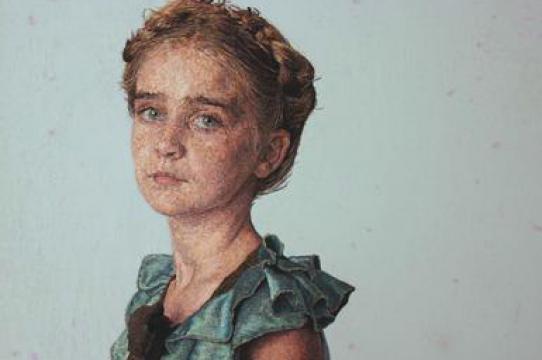Spring 2016
In the Spring of my fifth year as a Ph.D. candidate in Visual Studies, I taught HAVC 46: Intro to U.S. Art and Visual Culture with the support of a Chancellor’s Graduate Teaching Fellowship. Serving the fellowship's mission to foster pedagogical innovation, I involved my students in a quarter-long project for the creation of podcasts.The inspiration for this assignment came from a desire to support undergrads in creating work that could help a general audience to see the intersections between art history and everyday life. I also wanted students to comprehend not only how art and visual culture help us understand historical issues better, but also that there are real historical and social implications tied to questions of representation.
With these objectives in mind, students were asked to partner with a classmate in order to create a podcast where they analyzed two pieces of art or visual culture in order to comment on an issue in American history. In essence, the assignment asked students to develop their capacity to look closely at a work and derive meaning from its visual qualities. This is a skill that is foundational to art history: in shaping the podcasting assignment around it, I wanted all of the students, regardless of their major, to understand that reading images is an important skill in a world that relies heavily on visual forms of communication. By relaying this information in a podcast, my students would have the opportunity to translate their analyses (supported by research) into a format that wasn’t bound by the conventions of academic writing.
The most exciting element of this assignment was that students were given the freedom to select their artworks and topics. Since the podcast project was an experiment, I was asking my students for their trust in my ability to guide the class throughout each stage, from proposal to first draft and from revision to final recording. In turn, it only felt fair to reciprocate that trust by demonstrating confidence in their ability to develop thoughtful project topics and by offering them support, feedback, and guidance at multiple intervals.
Throughout the quarter, my students developed projects that addressed a wide range of issues such as pop art and contemporary brand culture, neoimperialism in video games and film, feminist critiques of the division between art and craft, and the early history of graffiti. A few examples are available here. Because these projects were driven by my students’ interests, I had a unique opportunity to learn about cultural forms that are outside of my expertise as I helped students to identify and evaluate relevant scholarly sources for their projects. In turn, students learned how to effectively synthesize their analyses and research findings in a manner that would be accessible to a general audience. A recent publication that analyzed 76.7 million job postings in 2015 found oral and written communication skills were in high demand across multiple industries. By writing scripts that formed the basis of audio recordings, students had an opportunity to develop skills that will be useful in their professional lives regardless of their major.
Ultimately, the most rewarding parts of this project for me as the instructor were the ongoing conversations that I had with students throughout the quarter and the opportunity to witness them develop a mastery of their material. They consistently surprised me with their creative approach toward their subjects and their drive to convey their passion for their topics through their audio recordings.
Although the quarter has ended, I am currently compiling materials that can serve as a guide for other instructors who are interested in incorporating a similar project in their classrooms and plan to write an essay that addresses the outcomes of the assignment in greater depth. The successes of this project could not have been possible without the opportunity provided by the Chancellor’s Graduate Teaching Fellowship, the mentorship of my advisor, Jennifer González, the support of Maria Evangelatou, and feedback and support provided by Leslie Kern and Aaron Zachmeier of the Faculty Instructional Technologies Center and Rachel Deblinger, director of the Digital Scholarship Commons.
This experience has been a turning point in my development as a teacher; it has taught me that students flourish when they are challenged to pursue their interests, they are encouraged to relate class material to their daily experiences, and are asked to communicate in ways that are relevant to them and their communities outside the classroom. I am excited about further developing such experimental pedagogies in my future classes.
Image caption: Cayce Zavaglia, Abbi, cotton, silk, and wool on Belgian cotton with acrylics paint, 2013


